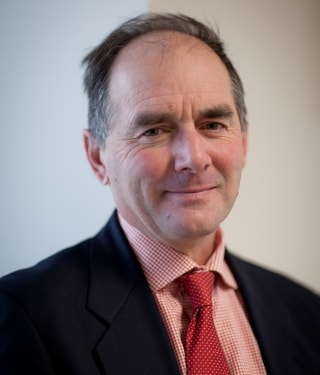Welcome

By the time the academic year 2013 opens, the Faculty of Agriculture and Environment (FAE) will have opened three major new teaching and research facilities within 12 months. The FAE will have amongst the best facilities of any comparable faculty in Australia. New facilities at Camden – our Centre for Carbon, Water and Food – and at Narrabri - our I.A. Watson International Grains Research Centre – will wonderfully complement our headquarter facilities at Australian Technology Park, Redfern. Each of these facilities has been developed specifically to house our outstanding researchers and teachers.
In the recent ERA ranking process conducted by the federal government, the FAE delivered a 5/5 score for the University of Sydney in two fields - Soil Science, and Crop and Pasture Sciences. We also contributed very strongly to another 5/5 in Plant Biology. These external assessments of our research strength are backed up by individual successes like those of our five ARC Future Fellows and our GRDC Professor, Robert Park. In the same timeframe, the FAE has secured more than $17M of new funding to support our research in the broad field of food security and to build a significant cohort of researchers at the IA Watson Centre.
We are not resting on our laurels. In coming weeks and months we will be rebuilding our animal production team, beginning with a Chair of Range Science and another senior academic in animal science. A wonderful gift from the estate of the late Nancy Roma Paech plus support from industry will see the FAE take the lead and help agriculture in NSW and beyond, increase its capacity to deliver quality food and protect the environment. Burgeoning partnerships with China, India, Pakistan, Africa and many parts of South-eas Asia will see our researchers and students working with their international colleagues to help feed the world. There has scarcely been a more important moment to come and join us in our mission.
We are also completely overhauling our teaching, from the ground up. Future students will have far greater interaction with our staff, beginning in first year. Radical changes in the way university education is delivered are coming fast and, as a small faculty, we are well poised to deliver content more efficiently and focus instead on personal interaction with students. Features of our curricula are field-work and laboratory work, where students benefit from one-on-one and small group teaching and instruction.
Much of this takes place at our research-intensive sites in the Snowy Mountains and on the Liverpool Plains. Our teaching focus is providing knowledge that will underpin solutions to the most significant and challenging issues of our time. Our advanced students also have the opportunity to complete part of their studies at some of the world’s best universities in Europe, the USA and the UK, if they wish. The very latest in technologies for quantifying key elements of sustainability – carbon, water and nutrient cycles – are key parts of our teaching and students emerge from our faculty, ready to contribute to industry and society.
Professor Mark Adams
Dean